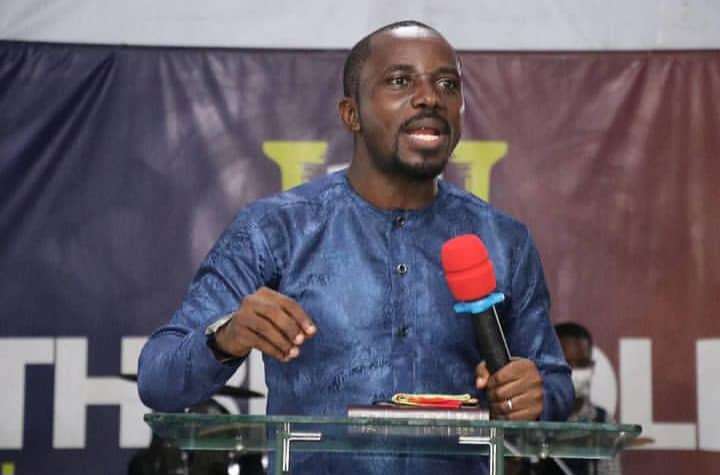Tidjane Thiam’s entry into Ivorian politics has ignited debates over whether his global business acumen can translate into effective governance in a system deeply entrenched in patronage.
As the leader of the Democratic Party of Ivory Coast (PDCI), he faces formidable hurdles in building grassroots political legitimacy, securing party unity, and offering a compelling economic alternative to the ruling government.
Dr. Joshua Oppong, in an interview with the Vaultz News believes that Thiam’s background presents both strengths and liabilities.
“Thiam’s experience leading multinational firms like Credit Suisse, Prudential, and McKinsey gives him a level of strategic and financial expertise that few Ivorian politicians can match. However, Ivory Coast’s political landscape is not built on corporate efficiency but on longstanding networks of loyalty, ethnicity, and historical ties. These factors often outweigh technocratic credentials in securing voter trust.”
Dr. Joshua Oppong
Thiam’s brief tenure as planning minister before the 1999 coup provided him with some exposure to local governance, but over two decades abroad may have left him disconnected from grassroots political dynamics.
While his international stature could attract urban elites and younger voters, it risks alienating rural power brokers who remain the backbone of political mobilization. His PDCI leadership victory in 2023 demonstrated internal support, yet converting this into broader national backing remains an uphill battle.
“On one hand, he represents a fresh alternative, untainted by the country’s divisive past of civil wars and ethnic conflicts. His global reputation signals competence and credibility, particularly among business communities and international investors.”
Dr. Joshua Oppong
While Thiam’s appeal to reformists and younger voters is evident, his ability to connect with traditional PDCI strongholds remains uncertain. His success largely depends on how effectively he can build alliances within a system that thrives on deep-seated relationships rather than corporate governance models.
Ivory Coast’s economy has seen significant growth under President Alassane Ouattara, averaging 7-8% GDP expansion pre-COVID, driven by infrastructure projects and investment inflows. However, allegations of democratic backsliding, including opposition crackdowns and Ouattara’s controversial third-term bid in 2020, have tainted this progress.
Dr. Oppong stated that “Thiam’s expertise in finance and global markets could help diversify the economy and attract investment.”
“However, translating corporate strategies into political realities is not straightforward. He may advocate for transparency and governance reforms, but without strong grassroots support, implementing such changes could face resistance from entrenched elites.”
Dr. Joshua Oppong

A Fractured Opposition and Internal Party Struggles
Thiam’s leadership within PDCI is already being tested. A legal challenge to his presidency — based on his past French nationality — remains unresolved, signaling internal divisions. Dr. Oppong stated that “The PDCI has struggled since the death of Henri Konan Bédié, and factionalism is evident.”
This division could weaken Thiam’s chances in the 2025 elections. If key party members defect or internal conflicts persist, the opposition may fail to mount a strong challenge to the ruling coalition.
Moreover, Ivory Coast’s economy remains heavily dependent on cocoa, which accounts for 40% of exports. Price fluctuations and climate risks pose ongoing threats, making diversification a crucial policy goal. Thiam’s global connections could help attract foreign investment into manufacturing, technology, and renewable energy. His experience at Credit Suisse in capital mobilization could be an asset in financing infrastructure projects.
However, the road to diversification is fraught with challenges. “Cocoa elites have a vested interest in maintaining the status quo and could resist economic shifts that threaten their influence,” Dr. Oppong noted. “Rural communities reliant on cocoa farming may also be hesitant to embrace untested industries.”
Without carefully structured policies ensuring that new economic sectors provide tangible benefits to all citizens, attempts at diversification could exacerbate inequality rather than alleviate it.
Tidjane Thiam’s bid for the Ivorian presidency is one of the intriguing political developments in the country in recent years. Dr. Oppong emphasized that “Thiam’s success depends on how quickly he can adapt.”
“If he can forge strong local alliances and address concerns over his outsider status, he has a chance to reshape Ivory Coast’s political landscape. But if he fails to integrate into the existing political framework, his candidacy may struggle to gain traction.”
Dr. Joshua Oppong
As the 2025 elections approach, Thiam’s ability to bridge the gap between his international credentials and Ivory Coast’s domestic realities will determine whether he emerges as a viable alternative or remains an outsider in the country’s deeply rooted political establishment.
READ ALSO: Politicians To Stay Out Of Security Operations- Richard Kumadoe



















